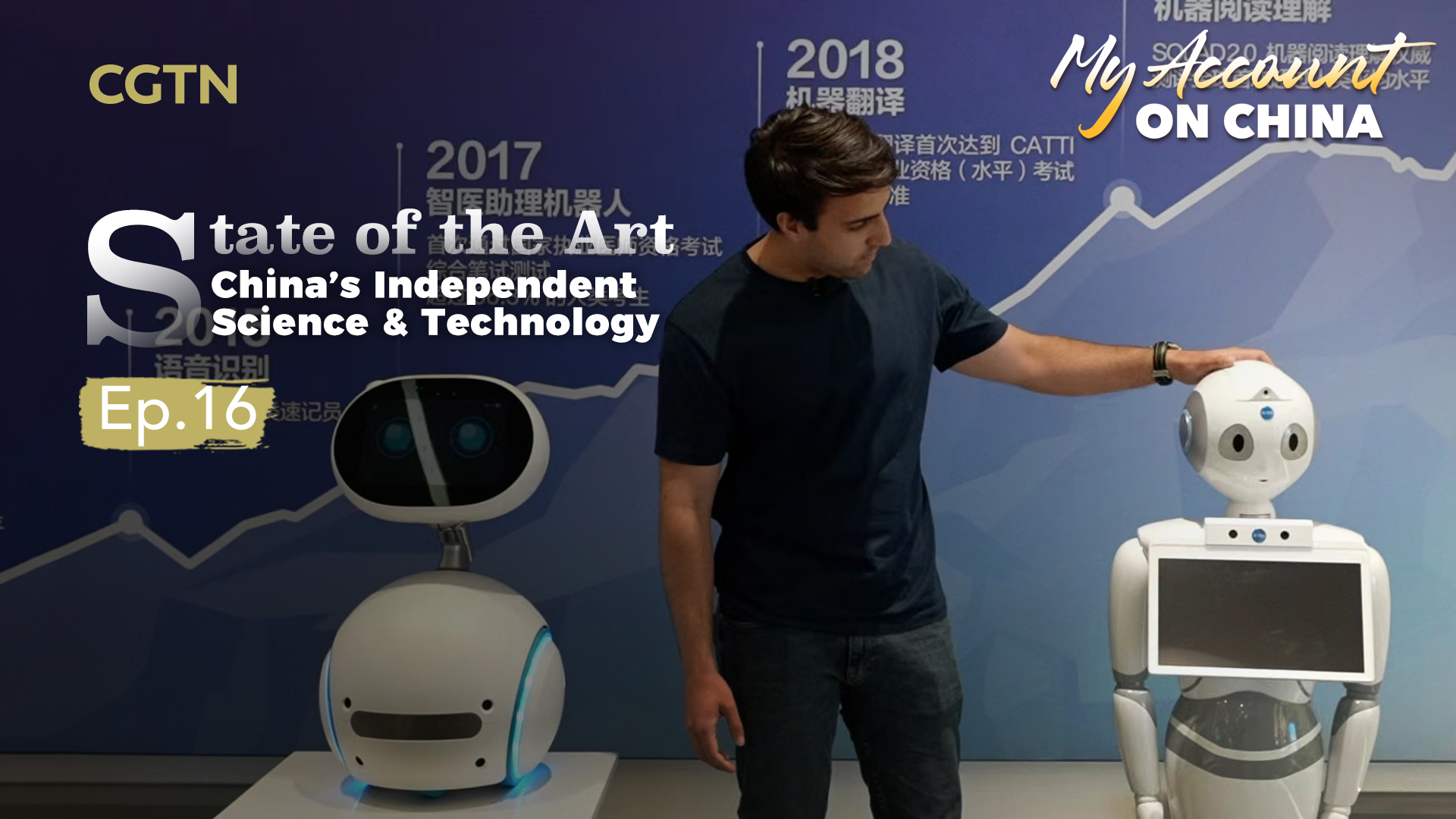09:02

Chinese technology companies have come a long way over the past decade or more. The country's economy and industrial strengths have previously been defined by manufacturing, trade and other industrial sectors.
But this has all changed.

Gree's R&D labs have become the main focus for the company's growth. /CGTN
Gree's R&D labs have become the main focus for the company's growth. /CGTN
Chinese home appliance producer Gree is a clear example of committing to R&D and innovation. The Zhuhai-based company has rounded up a number of international awards and accolades, and has also applied for more than 100,000 domestic patents. It's a testament to the company's creative and pioneering drive.

Gree has applied for over 100,000 patents as the company continues to grow. /CGTN
Gree has applied for over 100,000 patents as the company continues to grow. /CGTN
As I begin my visit of the company's massive industrial park, I'm welcomed by Tan Jianming, vice president of Gree's electrical appliances division. Speaking on Chinese President Xi Jinping's visit to the company back in 2018, Tan shares with me what this meant to him and what the company had to do in order to continue being a market leader.
Primarily, the message delivered to Gree was to pursue independent innovation, essentially ensuring that developed technologies are done in an independent fashion so they can stay native to companies across China. Tan says that the company realized that self-reliance was a key to going forward.
Tan tells me there are more than 16,000 R&D staff at Gree, and around 30,000 technical workers, accounting for more than half the workforce.

Tan Jianming (L), vice president of Gree's electrical appliances division, speaks to CGTN's reporter Omar Khan about how the company has made innovation a key part of their business strategy. /CGTN
Tan Jianming (L), vice president of Gree's electrical appliances division, speaks to CGTN's reporter Omar Khan about how the company has made innovation a key part of their business strategy. /CGTN
According to Nikkei's statistical release, Gree's global market share of household air conditioners reached 20 percent in 2020, which has ranked first globally for 16 consecutive years; and in the domestic market, Gree's central air conditioning market share has held the top spot for 10 consecutive years.
It's quite the impressive track record for the company, especially given external pressures and economic turbulence both domestically and globally.
Another point of emphasis that Tan shared with me is the focus on intellectual property. For him, pursuing innovation will enable stability for any company, and can protect future innovation and products.

Tan Jianming (R), vice president of Gree's electrical appliances division, shows CGTN's reporter Omar Khan some of the company's latest refrigerators and the technology being used. /CGTN
Tan Jianming (R), vice president of Gree's electrical appliances division, shows CGTN's reporter Omar Khan some of the company's latest refrigerators and the technology being used. /CGTN
Checking out Gree's showroom, I walk along a physical and visual timeline of some of the company's previous products. Air conditioners dating back several decades, all the way up until today. Not only is this an example of how the company has continuously developed and manufactured new products, but the main takeaway is that they've been committed to a specific market and haven't simply stopped after several periods of success.

CGTN's reporter Omar Khan experiences one of Gree's climate simulation facilities. /CGTN
CGTN's reporter Omar Khan experiences one of Gree's climate simulation facilities. /CGTN
But it's not just Gree that is making strides in a variety of technologies and products. Within the devices we use on a daily basis, there's the software, coding, artificial intelligence (AI) and machine learning – all features that cannot be forgotten.
My next stop is in Hefei, the capital of east China's Anhui Province, home to iFLYTEK a company that's specialized in speech translation, speech synthesis and all things language. Here I meet with Wu Xiaoru, president of the company.

Wu Xiaoru (L), president of iFLYTEK, talks to CGTN's reporter Omar Khan. /CGTN
Wu Xiaoru (L), president of iFLYTEK, talks to CGTN's reporter Omar Khan. /CGTN
He recalls the struggles the company had back when it was first founded by a group of college students. Support was lacking, technology and software were both non-native to Chinese developers and a lot of reliance was placed elsewhere.
Also a company that welcomed the Chinese President on a visit several years ago, iFLYTEK has now won consecutive global firsts in international competitions in their field. They've also made major breakthroughs in cognitive intelligence technology.

iFLYTEK's translation software is leading the country in this sector and has won international acclaim. /CGTN
iFLYTEK's translation software is leading the country in this sector and has won international acclaim. /CGTN
Checking out their main showroom, I get my hands on some of their latest products. Some of these devices can translate up to 60 languages – and that's simultaneous translation, all through AI, machine learning and their inhouse developed software.

CGTN's reporter Omar Khan checks out some of the iFLYTEK's robotics and AI technology in action. /CGTN
CGTN's reporter Omar Khan checks out some of the iFLYTEK's robotics and AI technology in action. /CGTN
Wu tells me that innovation has long been the company's lifeline, and eventually gaining support from the central government has been a major boost to their goals and development.
Looking at both of these companies, they're vastly different in what they do. One helps us communicate, and the other keeps us cool. But what I've learned from both of these businesses is that it doesn't matter what they're doing or producing, what matters is that they're both striving to achieve independent innovation. For them and other industry leaders in China, enabling homegrown innovation will likely be the only way to stay competitive, and embrace a smarter future.

